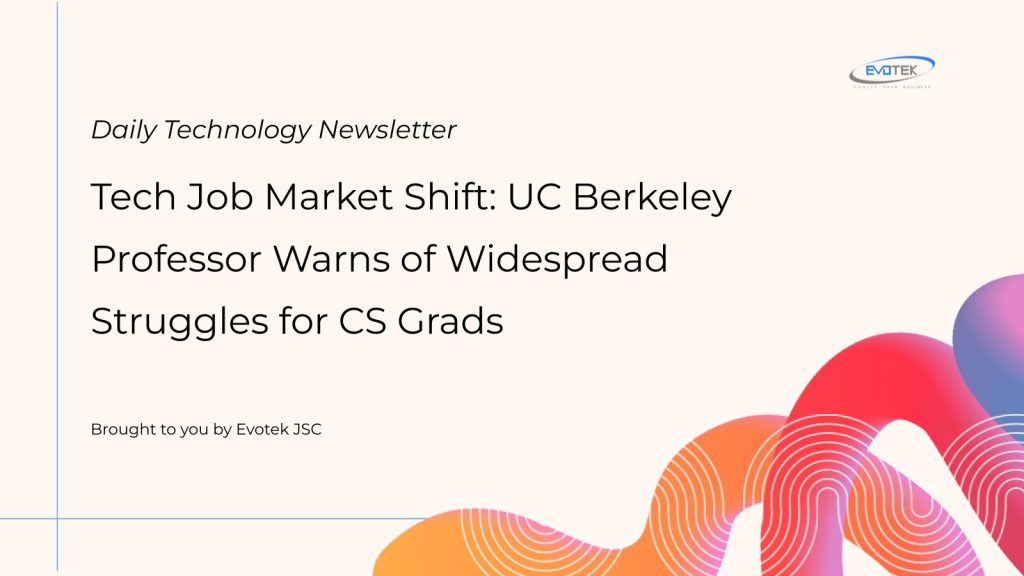By Brent D. Griffiths
Sep 28, 2025
A notable shift is underway in the tech industry, impacting even graduates from top-tier computer science programs. According to UC Berkeley professor Hany Farid, a renowned expert in deepfake technology, the once-guaranteed career path in computer science is now fraught with challenges, with students widely struggling to secure employment.

From Guaranteed Success to Urgent Concerns
Farid highlighted a stark contrast between past and present job market conditions for his graduates. “Our students typically had five internship offers throughout their first four years of college,” he stated during a recent episode of Nova’s “Particles of Thought” podcast. “They would graduate with exceedingly high salaries, multiple offers. They had the run of the place. That is not happening today. They’re happy to get one job offer.” This dramatic change, according to Farid, has unfolded in a shockingly short span of four years.
The professor’s observations resonate beyond Berkeley. He shared how astrophysicist Hakeem Oluseyi’s son, a senior studying computer science, is also experiencing significant difficulty in finding a job, underscoring the widespread nature of the issue.
Beyond AI: A Confluence of Industry Changes
While artificial intelligence often takes the blame, Farid suggests the reality is more complex. “It’s too easy to just blame AI,” he remarked. “Something is happening in the industry. I think it’s a confluence of many things. I think AI is part of it. I think there’s a thinning of the ranks that’s happening, that’s part of it, but something is brewing.”
Concerns over the future of computer science careers are echoed across Silicon Valley. The emergence of concepts like “vibecoding” and the increasing capability of AI to autonomously generate software have only amplified these anxieties. Even OpenAI chairman Bret Taylor has emphasized that success in computer science requires understanding fundamental concepts that extend far beyond mere coding languages.
Adapting Career Advice for an Uncertain Future
In response to this evolving landscape, Farid has significantly altered the career advice he offers students. He previously advocated for a broad education followed by deep specialization in a single area. Now, his guidance has shifted.
“What I used to tell people is you want a broad education,” Farid explained. “You should know about physics, and language, and history, and philosophy, but then you have to go deep, deep — like deep, deep into one thing, become really, really good at one thing. Now, I think I’m telling people to be good at a lot of different things because we don’t know what the future holds.”
The AI Imperative: Innovate or Be Left Behind
Farid strongly believes in the power of embracing new technologies for professional longevity. Like many in the AI field, he asserts that those who effectively leverage breakthrough innovations will ultimately surpass those who don’t. He illustrates this point with a compelling analogy:
“I don’t think AI is going to put lawyers out of business, but I think lawyers who use AI will put those who don’t use AI out of business,” he declared, adding, “And I think you can say that about every profession.”
This perspective underscores a critical message for all professionals, especially those in tech: continuous adaptation, skill diversification, and the strategic integration of emerging technologies like AI are paramount for navigating the rapidly transforming modern job market.

 日本語
日本語 한국어
한국어 Tiếng Việt
Tiếng Việt 简体中文
简体中文